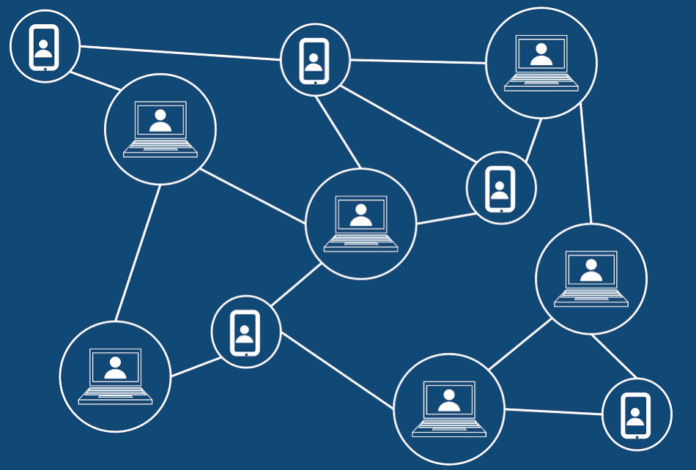Cryptocurrency has become a hot topic for global discussion. Keeping up with Bitcoin news, Ethereum news, and blockchain news can often seem like a full time job. However, given the meteoric rise of Blockchain stocks, including Bitcoin stocks and Ethereum stocks, a tech savvy investor may want to explore these investment opportunities.
How is a blockchain similar to more familiar technologies?
A “blockchain” might seem like a foreign concept, but in actuality, when we look at a blockchain on a larger scale, it works in a way that is similar to online tools and services with which all twenty-first century internet users are familiar. In fact, a blockchain is strikingly similar to Wikipedia, everyone’s favorite go-to source for quick yet comprehensive information.
In a blockchain, many individuals can write entries into a record of information. In turn, a community of users can control how the record of information is amended and updated. This is similar to how Wikipedia contains entries written by a single individual, but its content is controlled by a community of individuals who monitor the site. Individual Wikipedia entries can be updated by more than one user; likewise, a blockchain is a collaborative effort. No single individual controls the flow or publication of information; it is a collective effort of publishing and patrolling content.
While both blockchain technology and Wikipedia run on “distributed networks,” there are some important differences in terms of security.
When we take a closer look, though, the differences between a blockchain and Wikipedia become more apparent.
A distributed network can be conceptualized using the “if a tree falls in the forest” analogy. If a tree falls in the forest and someone is around to witness it, we can say with a reasonable amount of certainty that a tree did fall in the forest. There is evidence to support this conclusion, even if we might not know what caused the tree to fall.
With respect to blockchains, the distributed network is like our observer in the forest analogy. In a large network, validators reach a consensus that they witnessed the same thing at the same time. But this is where the similarities end. Unlike our individual who witnessed the tree falling in the forest, these validators use mathematical verification, not their sense data such as seeing and hearing, to reach their conclusions. If more than one person witnesses the toppling of a tree in the forest, the conclusion that a tree did indeed fall is strengthened and supported.
The more validators there are on the blockchain distributed network, the more secure the network will be.
Although both blockchains and Wikipedia run on distributed networks (the internet), they function differently. For example, Wikipedia is built using a client-server network model. This ensures that a user (or “client”) with permissions associated with its account is able to change Wikipedia entries that are stored on a centralized server. When a client accesses a Wikipedia page, he or she will get the updated version of the “master copy” of that specific Wikipedia entry. Wikipedia administrators maintain control of the database, allowing for access and permissions to be maintained by a central authority.
Interestingly, and importantly, Wikipedia’s digital backbone is similar to the highly protected and centralized databases employed by governments, banks or insurance companies. Owners maintain control of centralized functions, including the management of updates, access, and even protecting against cyber-threats. This is where blockchains and Wikipedia begin to diverge. Blockchain technology has a distributed database with a fundamentally different digital backbone.
The most distinct and important feature of blockchain technology is the digital backbone setup.
A Wikipedia entry’s “master copy” is edited on a server, and all users see the newest version. Blockchains function slightly differently. On a blockchain, every node in the network arrives at the same conclusion, updating the record independently; however, the most popular record becomes the de-facto official record, rather than there being an official “master copy.” Although this might seem confusing to some people new to blockchain technology, this is precisely why blockchain technology so useful. It is an innovation in information registration and distribution that eliminates the need for a trusted party to facilitate digital relationships. Nevertheless, blockchain technology is by no means “new”; it is simply a reworking of older, preexisting technologies, such as cryptographic keys.
Blockchains have a system of record that involves cryptographic keys, which gives some users a sense of security. In this process, Individual A takes her private key, making an announcement of sorts, such as that the individual is transmitting a sum of the cryptocurrency. This attaches to Individual B’s public key.
When using a blockchain to transmit cryptocurrency, security and identity become important issues.
In blockchain technology, private key cryptography provides a powerful ownership tool that can fulfill authentication requirements. This also allows the person using a blockchain to engage in a transaction without being required to share more personal information that could leave her exposed to hackers.
As blockchain technology proliferates, more people become aware of and use cryptocurrency, and as some established companies are even getting involved with blockchains and Bitcoin, the need for regulation becomes more apparent. Some countries, including South Korea and China, have begun instituting regulations for blockchains and cryptocurrency. Although there has yet to be a widespread push for regulation of blockchains and cryptocurrency in the United States, it seems to be only a matter of time until the law tries to catch up with, and regulate, technology.
(To learn more about blockchain technology, read How Does Blockchain Technology Work?)

















